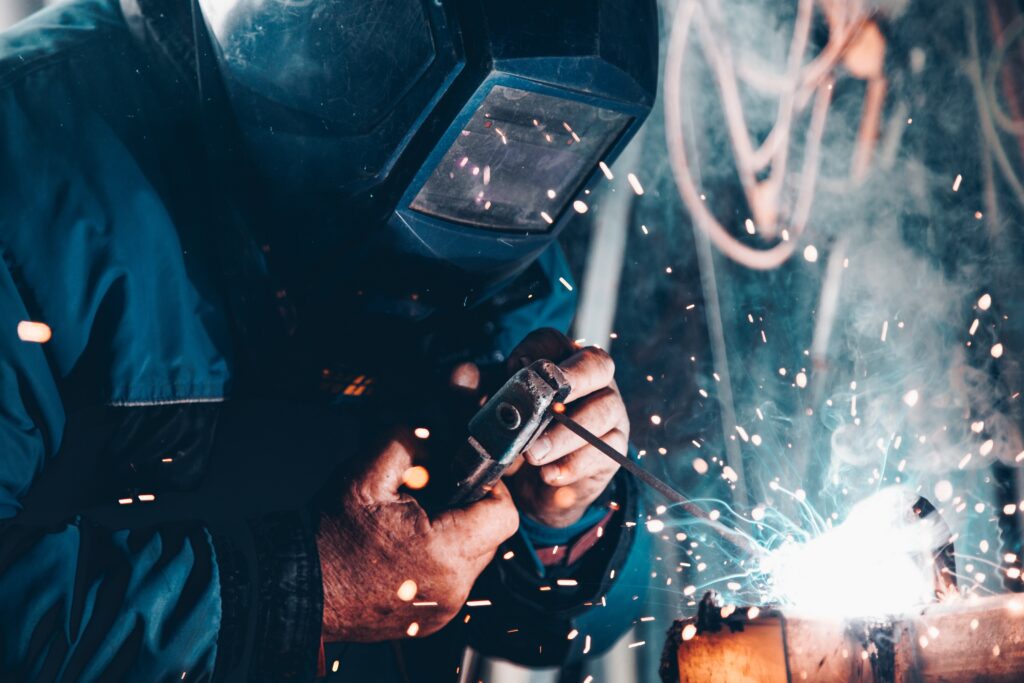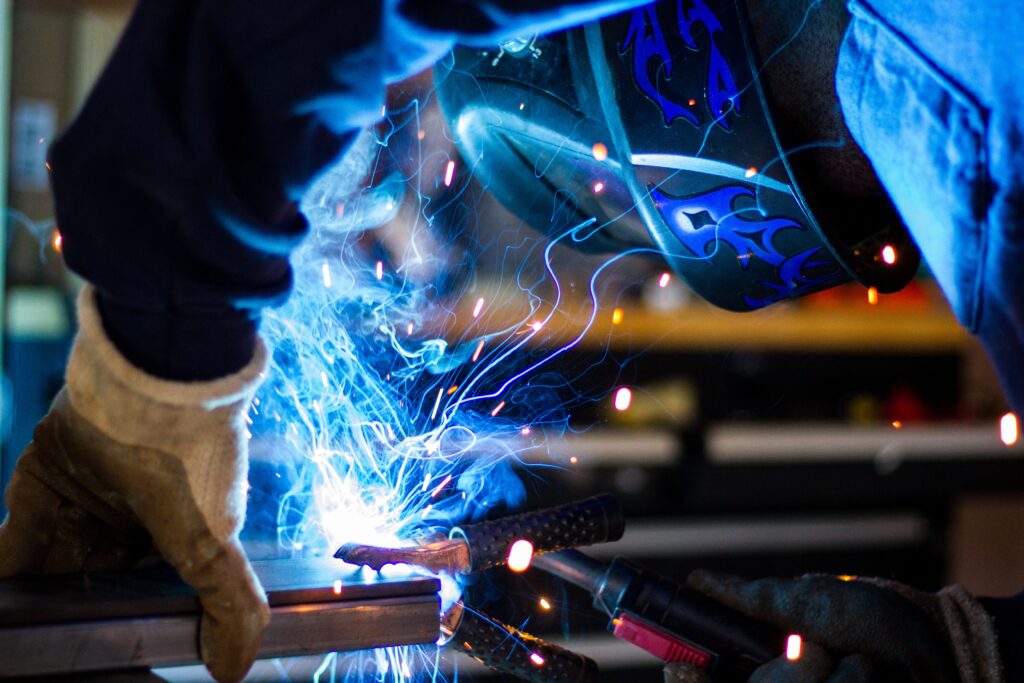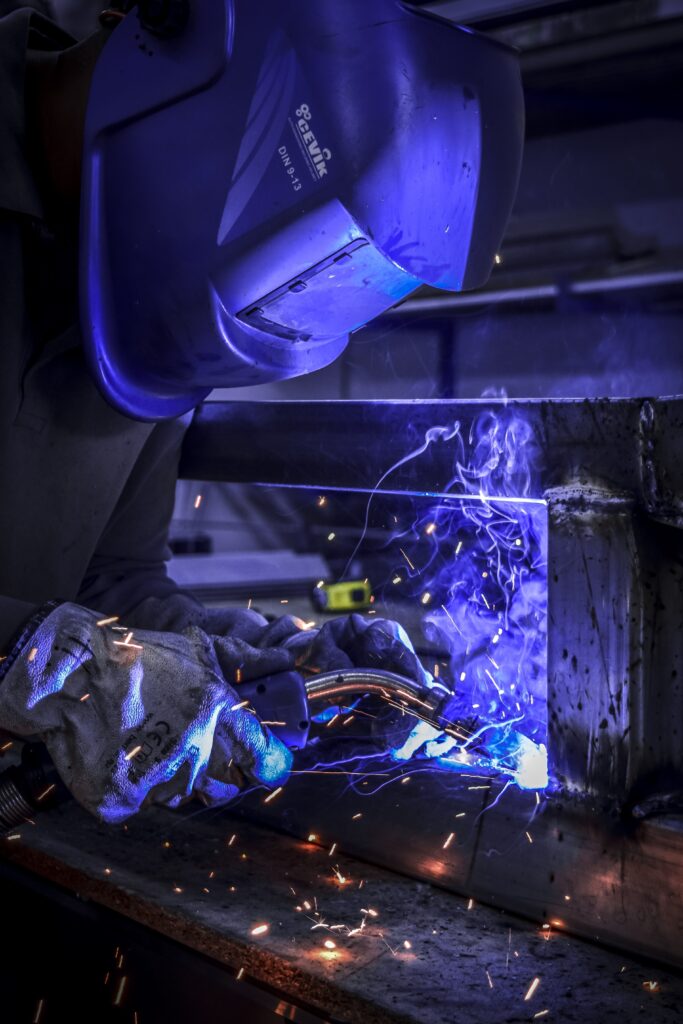You’re in for an enlightening read as we about to explore the question: “Can Welders Live A Long Life?” Fear not, because this article is here to shine some light on this topic. Drawing insights from studies and professionals, it’ll present you with fascinating facts about the potential health risks of welding and, more importantly, how welders can manage these risks and lead a long, healthy life. So, buckle up and get ready to learn something new about the welding profession and its effects on longevity.

Understanding the Welding Profession
Welding is a skilled trade that involves fusing separate pieces of metal into a single, solid form. You might consider it the art and science of joining metals. Welders use advanced tools, heat, and electricity to get the job done. It’s a demanding work that requires technical knowledge, accuracy, and a plenty of patience.
Overview of what welding entails
Welding is not as simple as joining two metallic parts together; it is a complex process that involves a practical understanding of electricity, temperature control, and material properties. You, as a welder, would have to know what temperature is ideal for what type of metal, where to make the welds, and how to ensure the structure’s integrity and durability. It’s a discipline that marries science and technique.
Various sectors where welding is applicable
Surprisingly, welding is used in many more sectors than you might think. From automobiles, construction, and aircraft manufacturing, to oil refineries, infrastructure, and even in artistic creations, your skills as a welder are required everywhere. Welding is a cornerstone in all applications that require a robust, reliable connection between metals.
Health Risks Associated With Welding
The welding profession, however impressive, has its risks. Understanding these health risks will help you, as a welder, take appropriate measures to protect yourself.
Exposure to harmful fumes and gases
When metal gets hot, it releases fumes and gases that can be harmful when inhaled. Frequent exposure to these fumes can lead to respiratory problems, lung damage, and other health issues if unattended.
Ocular damage from bright sparks
Constant exposure to the bright sparks can cause ocular damage. Not only can this affect your vision, but it could potentially lead to blindness in severe cases.
Risks of injuries and burns
Naturally, the profession involves working with high temperatures and strong electrical currents. This exposes you to risks of burns, cuts, and injuries that could vary from mild to severe.
Potential for hearing damage
Often overlooked, the consistent noise from welding machines may lead to hearing damage over an extended period.

Life Span of Welders Vs Other Occupations
Comparative analysis of a welder’s lifespan with other physical jobs
In comparison to other physical jobs like carpentry, masonry, and metalworking, welders can have a comparable lifespan, providing all safety precautions are taken.
Comparison with non-physical jobs
Compared to non-physical jobs like software engineering, teaching, or office-based work, the lifespan of a welder may be slightly lower owing to the exposure to physical risks and health hazards.
Health Considerations for Welders
As a welder, it’s essential to prioritize your health, considering the occupational risks involved.
Importance of regular health check-ups
Regular health check-ups are vital to ensure that any health implications deriving from your profession are detected at the earliest. This can help you avoid long-term health issues.
Common health complaints among welders
Welders often report respiratory issues, eye problems, skin burns, and hearing loss. Chronic musculoskeletal problems due to the physically demanding nature of the job are also widespread.

Preventive Measures for Welding Risks
There are measures that, if taken, can mitigate a lot of risks associated with welding.
Ways to prevent exposure to harmful gases and fumes
Good ventilation and wearing the right protective gear can minimize exposure to harmful gases and fumes.
Protecting the eyes and skin during welding
Wearing suitable PPE like welding helmets, safety glasses, and heavy-duty gloves can shield your eyes and skin from the harmful sparks and heat.
Equipment safety during welding
Maintaining your welding equipment in top condition can minimize chances of sudden breakdowns or accidents caused by faulty gear.
Role of Personal Protective Equipment (PPE)
PPE is the first and foremost line of defense against occupational hazards for a welder.
Importance of using PPE while welding
Using PPE like welding helmets, safety glasses, flame-resistant jackets, gloves, and footwear can protect you from most immediate risks including burns, eye damage, fumes, and physical injuries.
Types of PPE commonly used by welders
Commonly used PPE in welding includes welding helmets or shields, safety glasses, flame-resistant clothing, safety boots, ear plugs, and respirators.
Importance of Training and Awareness
The proper training and awareness can prove to be the difference-maker when it comes to your longevity as a welder.
Necessity of proper training for welders
Proper training equips you with the skills and knowledge to handle welding equipment safely, take preventive measures against health risks, and ensure top-notch quality of your welding work.
Impacts of awareness on minimizing risks and hazards
Being aware of the potential hazards in your workplace can help you stay alert and prevent accidents. This includes recognizing the implications of poor ventilation, faulty gear, and unsafe practices.
Impact of Lifestyle Choices on Welders’ Lifespan
Your lifestyle has a significant impact on your health and longevity as a welder.
How nutrition, exercise, and sleep can affect a welder’s health
A balanced diet, regular exercise, and adequate sleep improve your overall health, increasing your resistance to occupational risks.
Role of Tobacco and Alcohol in a Welder’s health
Tobacco and alcohol can exacerbate health risks associated with welding, such as respiratory issues and lowered immunity. A moderate to no consumption of these substances is highly advisable.
Chronic Health Conditions that May Affect Welders
Being aware of chronic health conditions can help you, as a welder, take the necessary precautions.
Common chronic conditions among welders
Chronic conditions like asthma, skin conditions, vision impairment, and arthritis are relatively common in welders, given their occupational exposure.
Impact of such conditions on welder’s lifespan
These chronic conditions can impact your lifespan as a welder. However, with proper management and preventive measures, these conditions can be handled effectively.
Conclusion: Can Welders Live a Long Life?
Finally, let’s address the million-dollar question: Can Welders Live A Long Life?
Holistic view on the longevity of welders
As a welder, despite all the health risks and potential hazards, you can still lead a long and healthy life. The key lies in mitigating the risks, taking preventive measures, maintaining a healthy lifestyle, and prioritizing your health.
Strategies for a healthier, longer life in welding
Conducting regular health check-ups, wearing proper PPE, ensuring good ventilation at your workplace, keeping up with regular equipment maintenance, and leading a balanced lifestyle can help you, as a welder, increase your lifespan and lead a prosperous life in your profession. After all, longevity in any occupation is not just about duration, but about the quality of life you lead as well.
